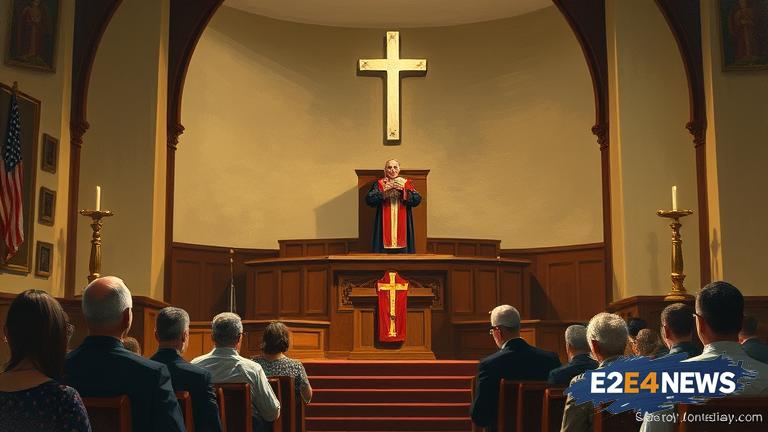In a shocking move, the US Internal Revenue Service (IRS) has reversed a 70-year precedent, allowing clergy to preach politics from the pulpit. This decision has sparked controversy and debate among religious and political groups, with some hailing it as a victory for free speech and others condemning it as a threat to the separation of church and state. The precedent, which dates back to 1954, prohibited tax-exempt churches and other religious organizations from endorsing or opposing political candidates. The IRS had enforced this rule, known as the Johnson Amendment, to prevent churches from becoming overly politicized and to maintain their tax-exempt status. However, the new decision, announced in a recent statement, effectively reverses this precedent, permitting clergy to preach politics from the pulpit without fear of reprisal from the IRS. This move has been met with widespread criticism from liberal and progressive groups, who argue that it will lead to the politicization of churches and undermine the integrity of the electoral process. On the other hand, conservative and evangelical groups have welcomed the decision, seeing it as a victory for free speech and religious freedom. The American Civil Liberties Union (ACLU) has expressed concerns that this decision will lead to the exploitation of churches for political gain, while the Alliance Defending Freedom (ADF) has hailed it as a major victory for religious freedom. The decision is also expected to have significant implications for the upcoming presidential election, with some churches potentially using their pulpits to endorse or oppose candidates. The IRS has stated that it will continue to monitor churches and other religious organizations to ensure that they comply with tax laws and regulations. However, the agency has also made it clear that it will no longer enforce the Johnson Amendment, effectively giving clergy a free hand to preach politics from the pulpit. This decision has sparked a heated debate about the role of religion in politics and the limits of free speech, with some arguing that it will lead to a more polarized and divisive society. Others see it as a necessary step to protect the rights of clergy and religious organizations to express their views and participate in the democratic process. The decision is also expected to have significant implications for the relationship between church and state, with some arguing that it will lead to a blurring of the lines between the two. As the debate continues to unfold, it remains to be seen how this decision will play out in practice and what its long-term consequences will be for American society. The US government has a long history of grappling with the issue of church-state separation, and this decision is likely to be just the latest chapter in this ongoing debate. Ultimately, the decision to allow clergy to preach politics from the pulpit will have far-reaching consequences for American politics, religion, and society as a whole. The implications of this decision will be closely watched by scholars, policymakers, and the general public, as the US continues to navigate the complex and often contentious relationship between church and state.
